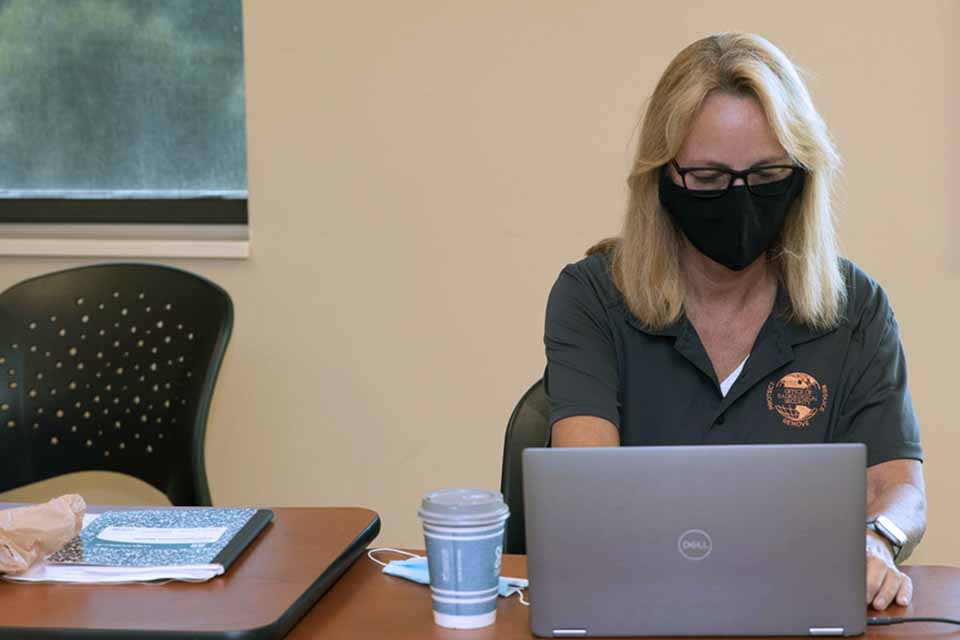Going the distance with ART

An Alarm Response Training instructor helps facilitate distance Alarm Response Training, or dART, to Northwestern Medicine Cancer Center during a class.
The National Nuclear Security Administration (NNSA) Office of Radiological Security (ORS) Alarm Response Training provides participants comprehensive training to understand and protect radioactive and nuclear materials in civilian facilities, like hospitals and research institutions. The specialized training is conducted at Y-12 and prepares participants to return to their work locations better equipped to handle the potential threat of radioactive and nuclear theft by applying training objectives.
As successful programs continuously improve, the ART team wanted to go the next step and develop innovative strategies to maintain relationships with sites that had previously attended classes. Distance learning was one of those suggested tools, so dART — distance Alarm Response Training — was born.
Program Manager Dan Romano said, “We were already researching distance learning when COVID-19 hit and caused a travel ban. But with the pandemic and lack of travel, it became more important for us [NNSA’s Office of Radiological Security and Y-12] to remain engaged with ART alumni sites and present awareness concepts to sites that yet had attended ART.
“The pandemic brought an unexpected shift in our nation’s situation, and the ART staff looked at this challenge and developed, demonstrated, and ultimately executed dART in about two months,” Romano said.
Thanks to the group’s dedication and teamwork, dART classes offer previous ART trainees, and those wanting to learn how to protect radioactive and nuclear materials, continued engagement and awareness.
“We have held three dART classes so far. Attendees were the University of Arkansas Medical Center, North Carolina State University, and most recently Northwestern Medicine Cancer Center,” Romano said. “Our week long ART sessions will return once our nation returns to pre-covid status, but dART will remain as an integral component. We plan to hold at least two dART courses each month.”
With the creation of dART a new partnership was developed with Roane State Community College. “We store our asynchronous materials on Roane State’s Learning Management System, and we conduct our instruction at the Oak Ridge facility,” he said.
dART offers a condensed version of ART and covers all ART learning objectives (minus the drills), but instructs at a lower order (less intense) of learning — this works as both a refresher for previous ART attendees and radiological security awareness for those yet to attend. dART also offers partner sites the option to “customize” according to their needs.
Since 2009, Y-12’s ART has conducted more than 200 classes for almost 7,000 participants from 48 states and 19 countries. Last April, Y-12 celebrated its 10th anniversary and is a program developed and maintained through NNSA’s Office of Radiological Security.
